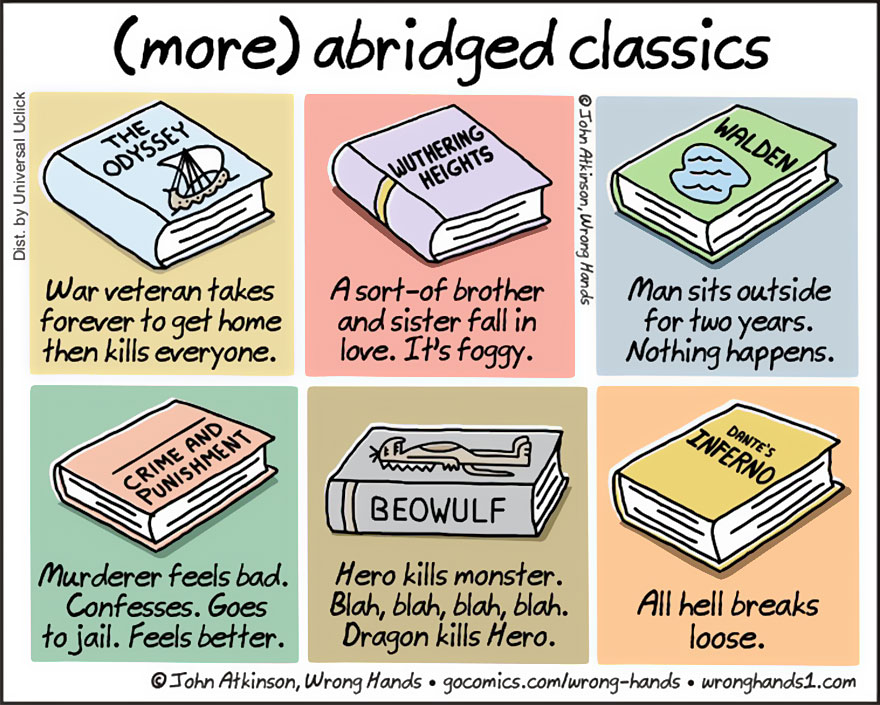
Novels used to be long, really long. Samuel Richardson’s 1748 Clarissa weighs in at 467,870 words (for comparison, standard advice to authors today is that a novel should be between 70,000 and 110,000 words). Then between the second half of the nineteenth century and the first half of the twentieth, literature went on a diet. John Buchan’s 1915 Thirty Nine Steps is 29,725 words. Everything changed again in the second half of the twentieth century, with word-count ballooning. You can see my analysis of these trends in this blog post.
In that post I attributed the changes to:
- The growth of a mass market for books in the nineteenth century resulting in a working class appetite for shorter books than those which had been enjoyed previously by the leisured classes.
- The advent of cheap air travel and long haul holidays in the second half of the twentieth century leading to the parallel creation of the “airport blockbuster”.
The trend for larger books continued into the present century, A study found that average book length increased by over 25% (or 80 pages) between 1999 and 2014: from 320 to 400 pages.
The modern obesity of literature appears paradoxical, given the standard claim that readers’ attention spans are diminishing (thought the evidence for this is dubious). You might expect book lengths to decrease again, and people in the industry keep claiming that this is happening, but I haven’t seen convincing evidence. In my 2018 blog post I decided this was an urban myth, though there was clear evidence of such a trend for non-fiction. But five years on, I decided to take another look at fiction.
Yes, novels are getting shorter
I looked at the New York Times fiction #1 bestseller lists between 2010 and 2022. And finally, there is evidence that novels are getting shorter. The point at which the change happened seems to be around 2015.

Average page length has dropped 53.2 pages (or about 11%) comparing the 2010-2014 years with 2015-2022. This change has a probability of 0.0095 of occurring by chance (unpaired t-test) and is, thus, highly significant statistically. For one of the list’s most prolific authors, James Patterson, the drop in novel size is even more pronounced. His novels shrank by almost 80 pages from an average size of 455 pages in the first period to 376 in the second.
A similar study by Wordsrated looked at the top three positions in the New York Times bestseller list between 2011 and 2021 and found a similar trend. However, this analysis pooled fiction and non-fiction titles.
Why are novels getting shorter again?
Precisely why this change has happened is unclear. Perhaps it is the fabled shrinking attention span kicking in, though I have never been very convinced that this is even a thing. My own favourite hypothesis is that it’s due to the growing market for e-readers and e-books during the second decade of this century. The graph below shows the sales of e-books in the US. From a slow start, they begin to take off from around 2010, making a change mid-decade quite a plausible consequence.

Why might the rise of e-books begin to erode novel size? For the simple reason that the weight of an 80,000 word book in your e-reader is exactly the same as that of a book twice that length. The reader is no longer so able to readily do a cost-per-page comparison between two possible purchases. This allows publishers to more readily accept works for e-publishing that violate the standard length guidelines.
Persuasive though I find this argument, there is no evidence for it. And I should point out that the rise of e-books was advanced as a possible reason for exactly the opposite phenomenon: the increase in book lengths in the first decade of this century. The argument was that, by virtue of not being able to weigh the length, fat books were not intimidating.

